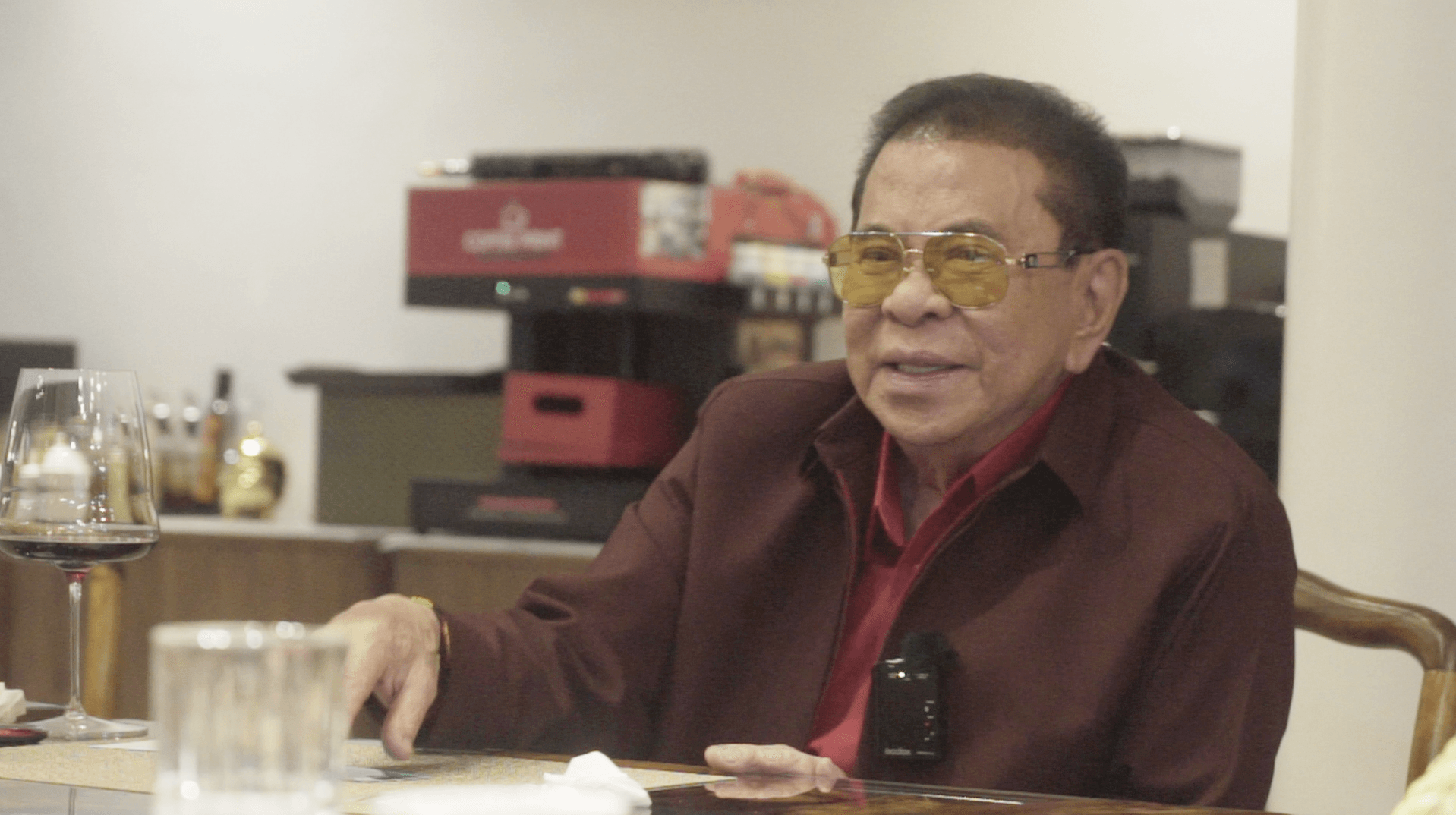
Chavit Singson is a man whose reputation has many versions, each one weaving a tale about a long journey that only few will have the chance to take.
Named Luis Crisologo Singson, he is better known only by one name – Chavit.
Very recently, he was called “Legend in the Philippines” by a writer from Poland who first sought to meet Chavit because he had trended in social media for distributing ₱500 bills through a money gun. (The book will be out soon.)
Stories about Chavit’s power, influence, generosity, and “warlord aura” have floated to enrich the narrative. Most times, it is Chavit’s unguarded remarks that create the stories, for when he speaks, the saying “no holds barred” comes true.
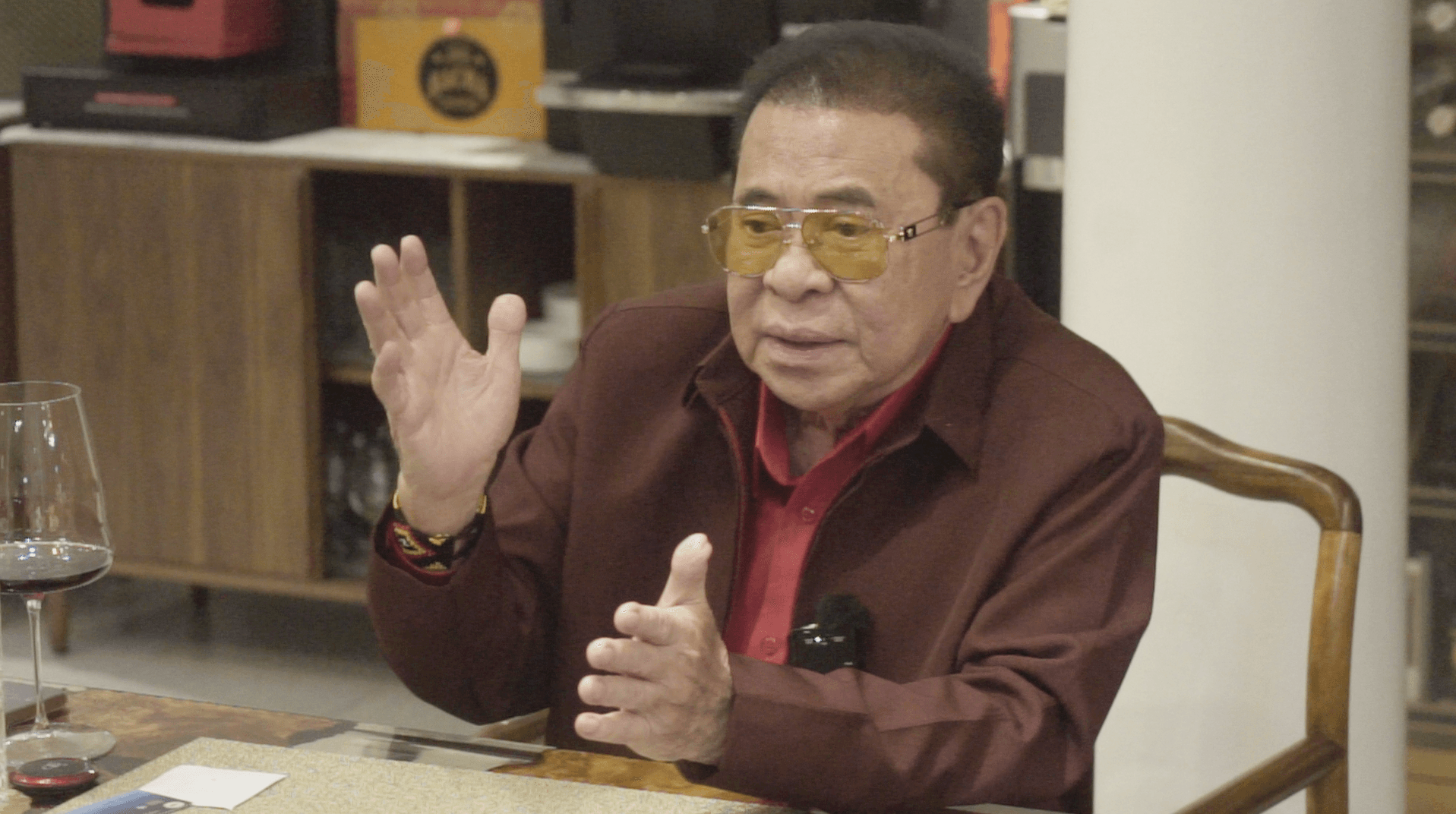
The latest addition to this man’s story will be an election campaign for senator which officially starts Feb. 11, 2025, but has already unofficially started. Billboards that carry the candidates’ faces without any mention of elective positions stand along major thoroughfares. One of these carries the face of “Manong Chavit” smiling a shade of delight.
It is the same expression he flashed when he related a story of being asked so politely by a man from the audience he had just addressed: “What position are you running for?”
Chavit is amused at that story, saying not many know he is running for senator. Perhaps it is because Chavit is known as a kingmaker. Many politicians have sought his support when they ran for office.
Generosity
Adding color to his reputation are the many stories about his benevolence and generosity which border on fiction.
Once, he used a “money gun” to let fly ₱100 and ₱500 bills over people’s heads to celebrate his birthday. The writer from Poland who sought him out to check if he was real, stayed for 121 days in the Philippines and wrote the book “Chavit: Legend in the Philippines.”
And there’s the story of an old farmer in Leyte who Chavit met through a mayor who had related the farmer’s hard-working nature while living in poverty. Chavit visited the stranger and found the small hut in bad condition, its roof leaking. He surprised the old farmer with an offer to vacation in Manila, hosting him in a hotel for a few weeks. When the farmer went home, he found a newly-built house, sacks of seedlings for crops, and the title of the adjacent lot as an extension to the farm.
“I only heard he was hard-working, that’s what got me to visit him,” he said, emphasizing that he does not give dole-outs, he wants to help those who work hard.
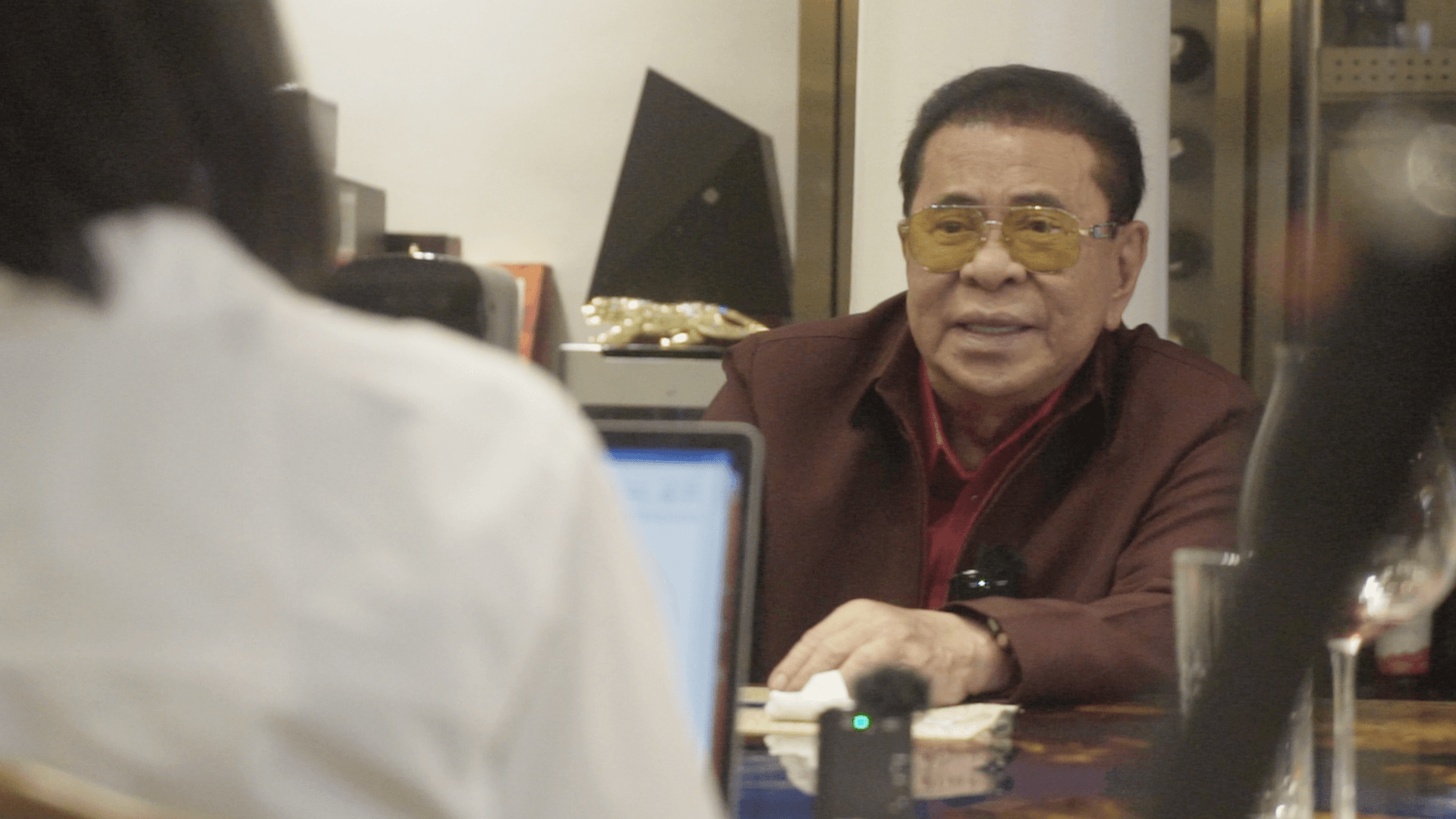
There are more such stories about the generosity of this man from people whose education he sponsored, athletes he supported, and complete strangers who had come to him asking for help.
Until today, complete strangers appear in his house in Quezon City or in Ilocos Sur.
Chavit smiles when asked about the stream of people who visit him every day. “If there would be no people in my house, I’d be alarmed. I’ve become used to that. I have time to listen and to help. I feel happy seeing someone happy that they get some help.”
LCS Group
Chavit is one of the richest men in the country. He earned his first million when he was in his late 20s, from selling tobacco leaves. His entrepreneurial skills started when he was very young, selling beverages and peanuts in the movie house owned by his father. Today, his businesses under LCS Group of Companies are in various industries like mining, automotive, aviation, telecommunications, security and defense, property development, and food.
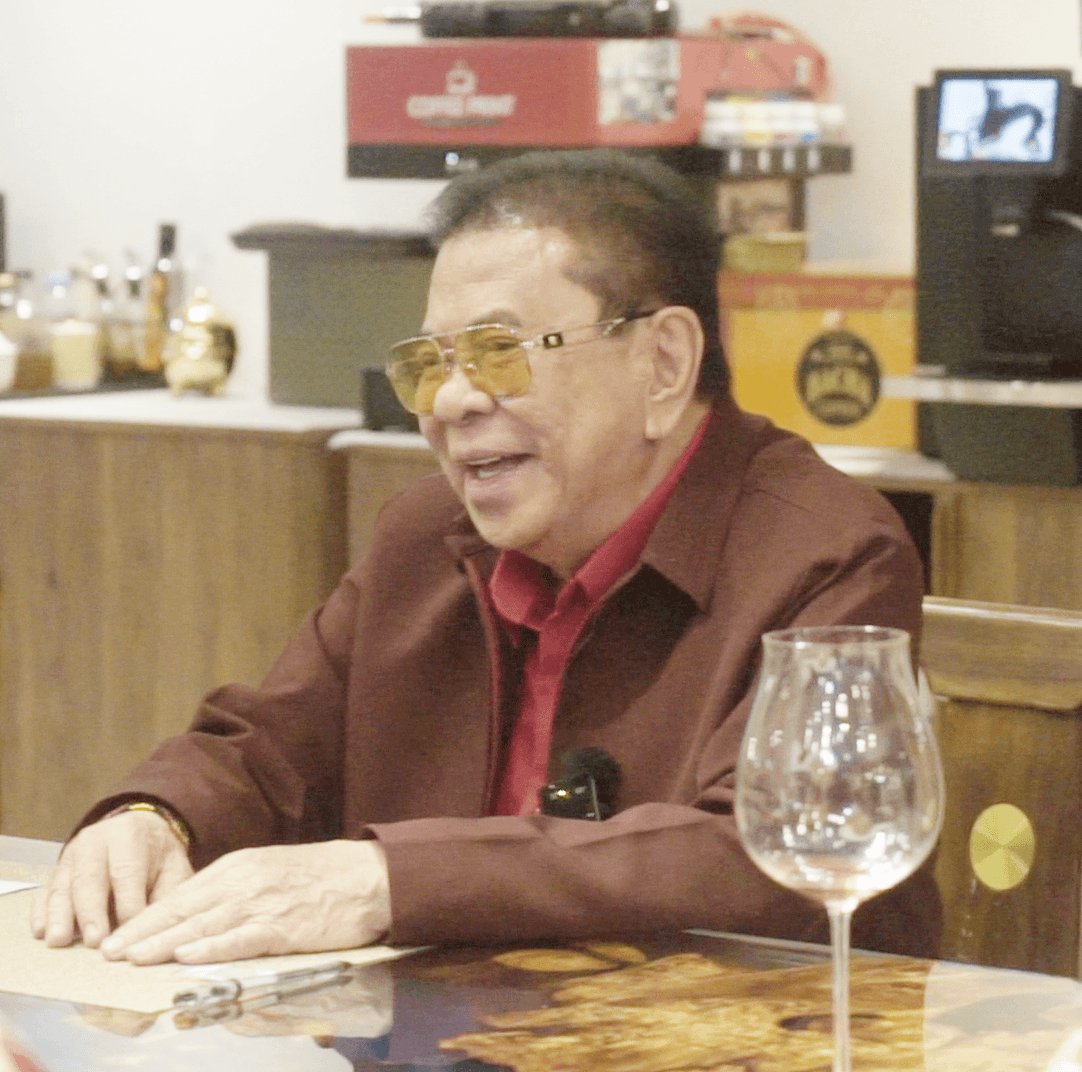
The trait which keeps everything – business and politics – running is his word of honor. Before he even thought of running for the senate, he offered a 28-seater electric vehicle (EV) at a price of only ₱1.3 million, in support of the Philippines’ PUV modernization program. The available EV units for the same purpose costs at least ₱2.3 million a unit. His automotive distributorship company offers the unit through a no-interest, no down-payment scheme.
“My economic advisers were shocked! The price is too low, the company will surely lose money, they told me. I had already given my word. My father taught me never to go back on my word. I will be nothing if people will not believe my word.”
He shrugged, and said: “I will make up for that loss in another business.” He points to a model of a small plane in the large dining room. “My company is studying those air and sea vehicles now.”
Word and action
People say it’s his word and his actions that created another version of the Chavit legend. That’s a fact confirmed by his many years of government service. Starting his political career 57 years ago, in 1967, as councilor, as governor of Ilocos Sur for 30 years, as congressman, and more recently as mayor of Narvacan. He is the president emeritus of the League of Municipalities.
As congressman of his district in 1987, he is always proud to say he authored only one law – Republic Act 7171 – which allocated a percentage of excise taxes on locally manufactured Virginia tobacco to the Ilocos provinces. From being one of the poorest provinces, Ilocos Sur rose to being the fifth richest province, a pride he talks about repeatedly.
Rising leader during time of lawlessness
On the other side of the benevolent patron image are the stories that have become urban legend, of him as a warlord operating in an atmosphere of lawlessness in Ilocos Sur in the sixties.
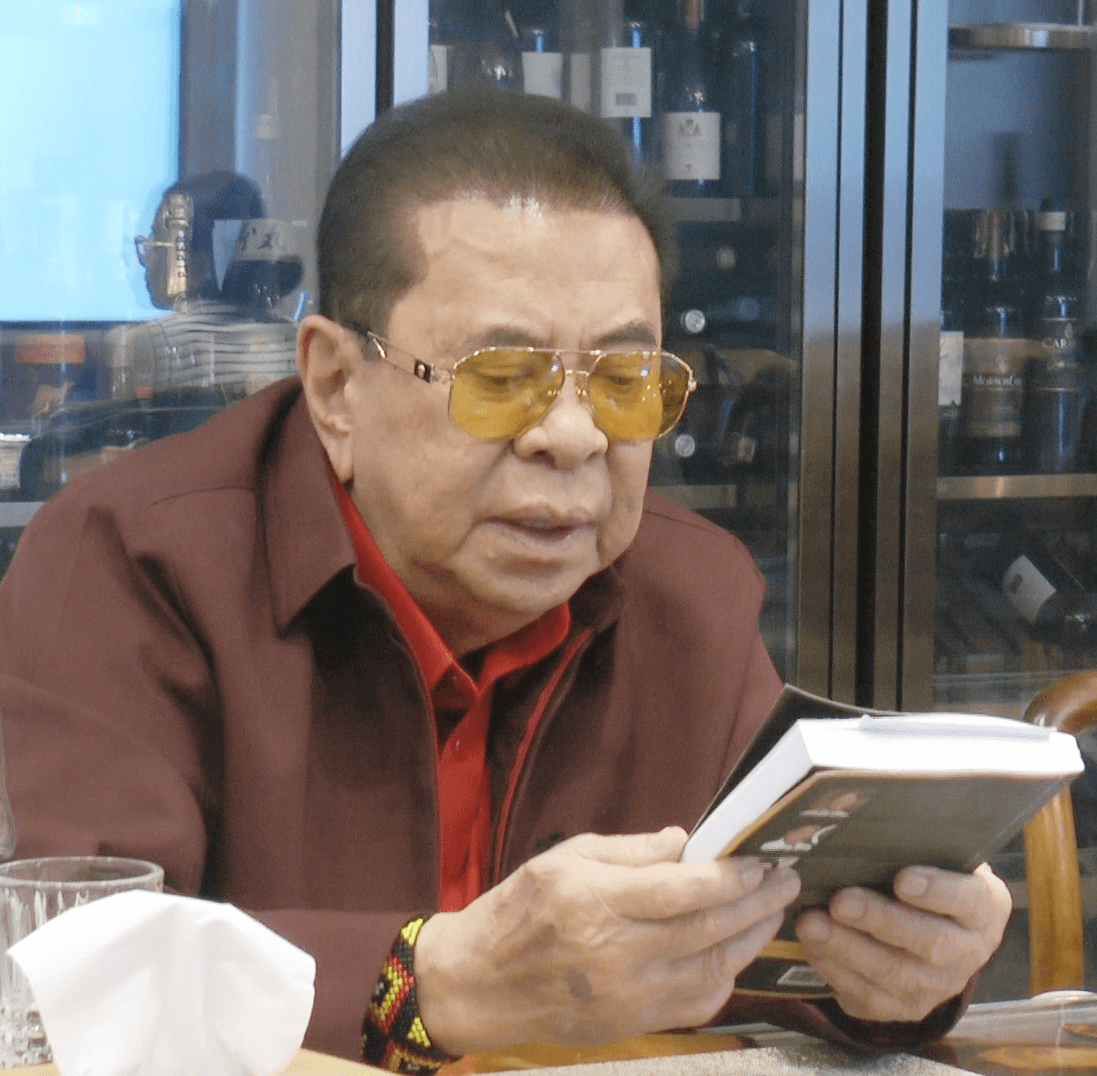
Chavit’s political life actually started during the days of lawlessness in his province. He tells us about killings that happened too often. A mayor is gunned down after he replies to a gunman’s query about his identity. The governor who came to investigate was gunned down, and so were the policemen who came after that.
Chavit Singson entered politics in the middle of that. “No one wanted to run; all of them pushed me to run. I was already a successful tobacco businessman and I had made my first million.”
Bringing home Miss Universe
That businessman and politician has also made a name in the entertainment industry when he got the Miss Universe franchise in 2017, bringing in a plane full of the most beautiful women in the world to the country. Chavit finds delight in relating the nitty gritty of the negotiations – and the $13 million – that finally granted him the franchise.
Again, his economic team balked. And again, this billionaire businessman saw profit – it gave the country a good name with the media mileage it got around the world.
Why do you want to be senator?
Now, why would a billionaire, kingmaker, and happy father eye such a position which will take all of his time, leaving none for family dinners, visits to children, and hunting with good friend Steven Seagal in any part of the world?
“I want to help people. I want to cut red tape. I want to make laws,” he said.
Even before the official start of the election campaign, Chavit has an outline of his platform, what he will do when he gets to the Senate.
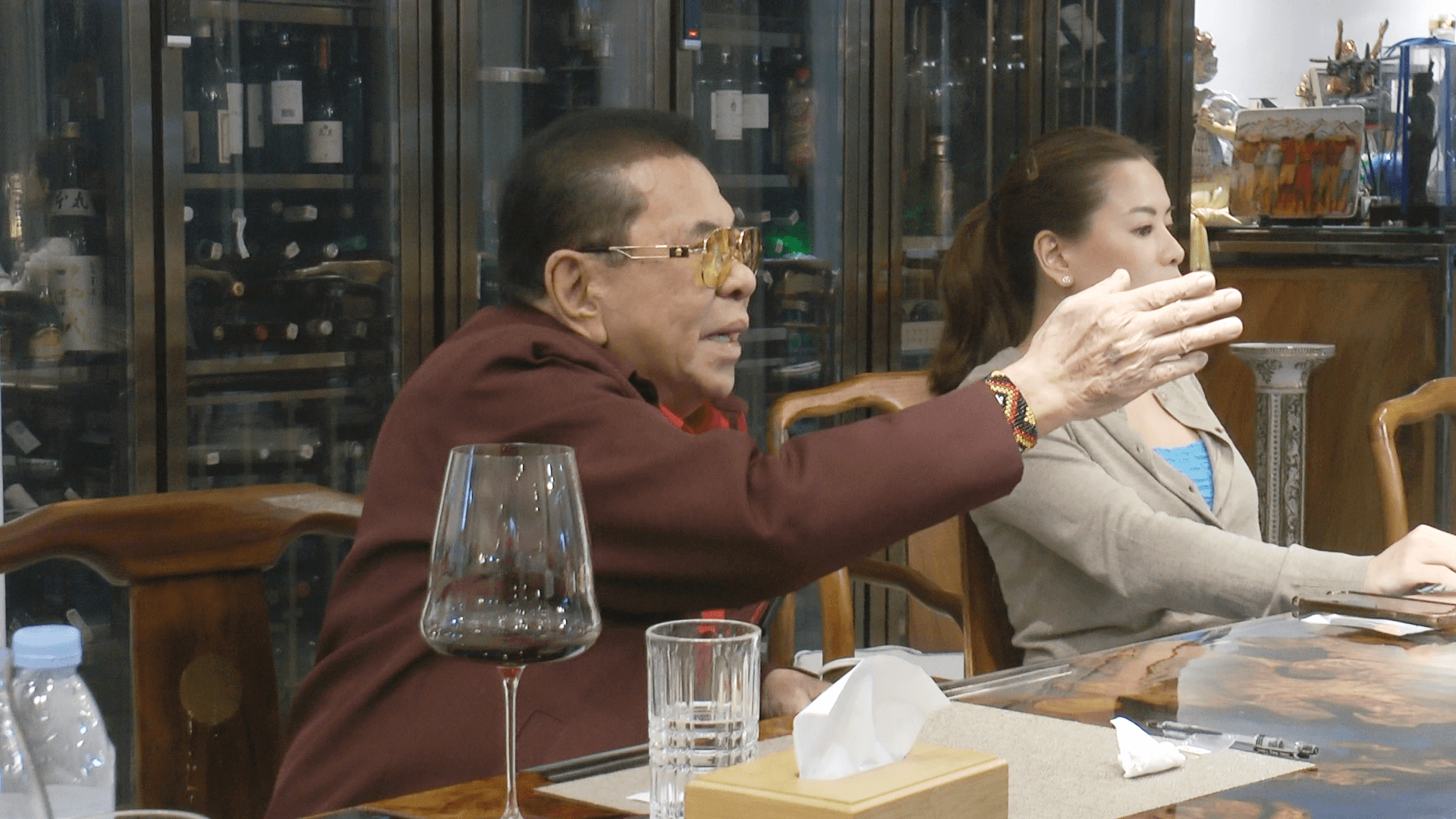
First, he will push for digitalization especially in all commercial activities. He pulled out what he called the “Narvacan Card” – which he introduced in Narvacan when he was mayor. The plastic card is an ID card, debit card, and credit card. As a debit card, it is used to make efficient the purchase of goods in the public market and stores. Chavit, who of course holds Narvacan Card No. 1, said he had used the card to withdraw money while he was abroad, just like what other cards offer, and as a credit card too.
“I will cut red tape” is also in his to-do list when he is elected senator. He said many projects and donations do not progress – or take too long to materialize – because of government red tape. “I have personally experienced that when I donated special armalites for our military. It took two years.”
His first bill, he said, would be one for those earning below minimum wage, or are unemployed. He has a title for the bill – Universal Basic Income – and a catchy slogan for it too – Chavit 500. The law aims to institutionalize all of the aid that is now being distributed to the poor, among them the 4Ps, the ayuda during calamities, and other forms of assistance.
“I want that the cash assistance of ₱500 per family given to all those who need it, not only because of their political affiliations.”
How do you want to be remembered?
How does this man want to be remembered – as a politician, or a businessman? “As a benefactor,” he replied.
“I like helping people. I feel happy when the person I helped is happy. I don’t mind losing money. I am not interested in money. Gusto ko lang (I’d like) when I die, I will go to heaven,” he said.
“Every morning when I wake up, I thank the Lord for giving me another day; I read the Bible and I gave all my children a Bible.”
Today, when he walks into the room, heads turn, and facial expressions change depending on what story of Chavit one has heard. Was it the part where he survived six attempts on this life, the latest which was done with a grenade? Or the story of how he had supported a sports hero’s political career? Or the many stories of his random generosity to a poor farmer, student, jeepney driver, or Olympian athlete?
Whatever story one has heard, this man still attracts attention. He is 83 and his voice is solid. His conversations are clear. His wit is fast. And he wants to serve the country again.